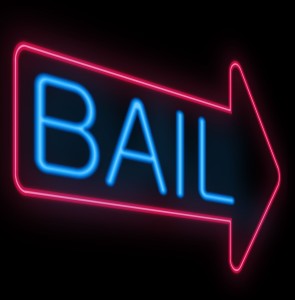
For parents or friends who have had to bail a loved one out of jail, one of the more common questions they ask me is, “Will I be able to get my bail money back?” It’s a great question, and there isn’t always a straight answer. We’ll explain how the process works in this blog.
Bail vs. Bond
Before we answer the question, it’s important to understand the distinction between bail and bond, and how they related to one another.
Bail – Bail is money paid to the court system to secure your release from jail and it guarantees you’ll attend all future case proceedings. If bail is set at $1,000, you’ll have to pay $1,000 to be released from jail. Money can be paid by family members or friends or services like this Huntington Beach Bail Bonds can be used to post bail.
Bond – A bond is an item offered by a bonding company that holds the bonding agent responsible for the person in custody to attend all future court hearings. A bond can be acquired for much less, typically 10 percent of the bail amount. So if bail is set at $1,000, a bond that can get you out of jail would cost around $100.
Looking at those two statements, you’re probably thinking “Why wouldn’t everyone just go the bond route?” To answer that question, we have to dig a little deeper.
Getting Bail Money Back
One of the biggest differences between bail and bonds, besides how much you need to “post” in order to be released, is what you can get back at the end of the trial. With bail, if the charges are dropped or you are found innocent, your bail money will be returned to you. That said, some of the bail money can be applied to court fees, even if the charges are dropped. If you posted bail for someone else, and the charges were ultimately dropped, you may want to let the defendant’s attorney know about who posted bail, as they may be able to insure court costs are paid by the defendant and not your original bail posting, however, this can’t be guaranteed. Similarly, if the defendant is found guilty, the bail amount may go towards court fees.
Bond, on the other hand, will not be returned to the defendant, regardless of the case’s outcome. So if you paid $100 to a bonding company to secure your release from a situation where bail was set at $1,000, that $100 is gone and it will not be applied to court fees. Again, this may seem like the best route if you believe the charges against you are going to hold up, but oftentimes a bond requires more than just 10 percent of your bail amount. Bond companies may require that you put down some sort of collateral to ensure you go to court, because they are the one on the line for the full $1,000 if you fail to show. If you have a car, the bond company may require that you put that up as collateral in the event that you skip town or a court appearance. It’s important to note that you won’t forfeit this property if you show up to all appearances and are found guilty – only if you skip court.
So if you believe you were wrongly arrested or you stand a good chance to beat the charges, bail is probably your best route to go. If the bail amount is set high and it’s better to forfeit 10 percent of the amount to keep other affairs in order (think work, childcare or other issues that could be negatively affected by your presence in jail while awaiting trial) then bond might be best for you.
In the end, the only way to guarantee that you’ll get a portion of your bail back is if the defendant beats the charges. You can also come to an agreement with the defendant that you’ll post bail or bond with the understanding that they will pay you back, but that’s between those two parties, and it might not be worth the cost to take them to court if they fail to pay, even if you draw up a contract.
If you have questions about bail or bond, contact Appelman Law Firm for more answers.





